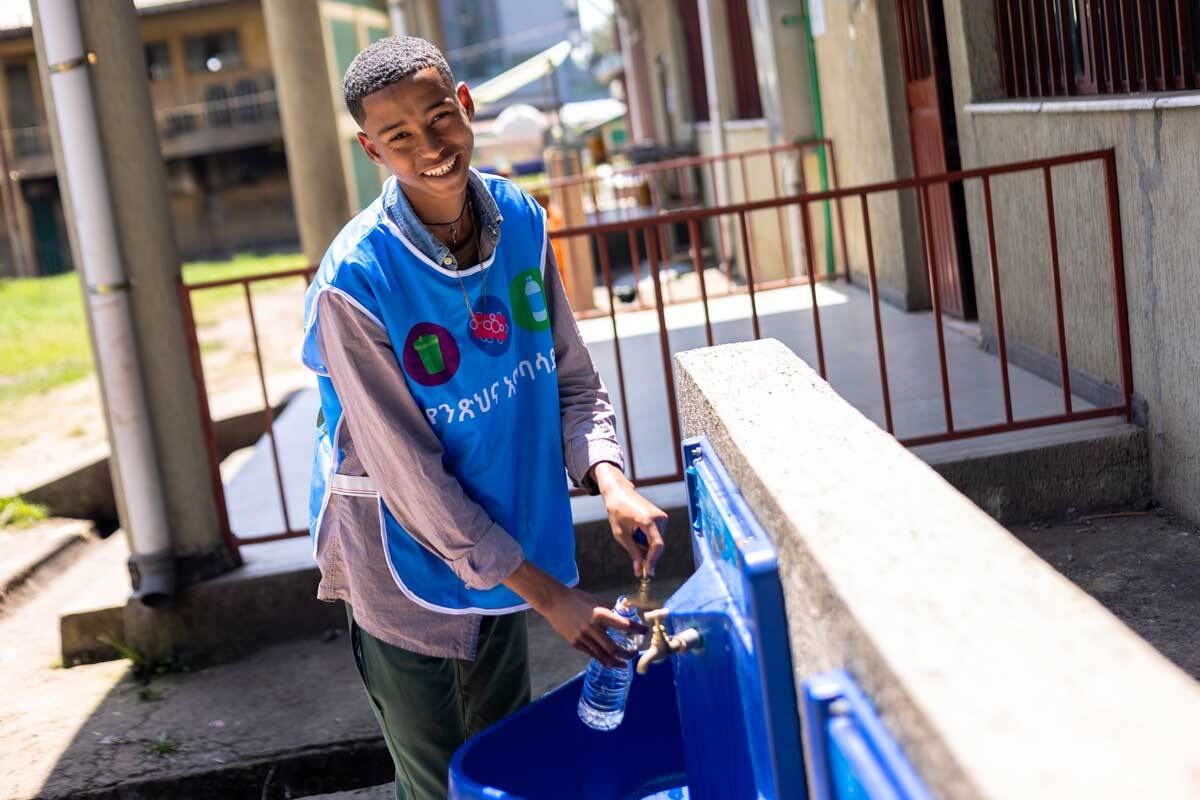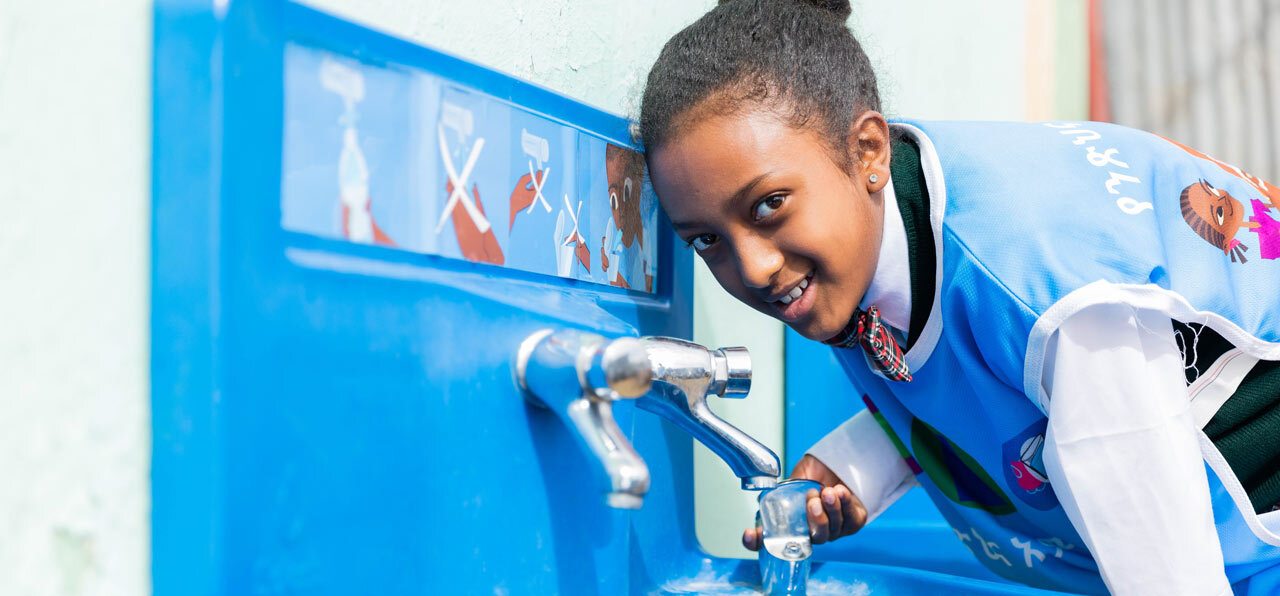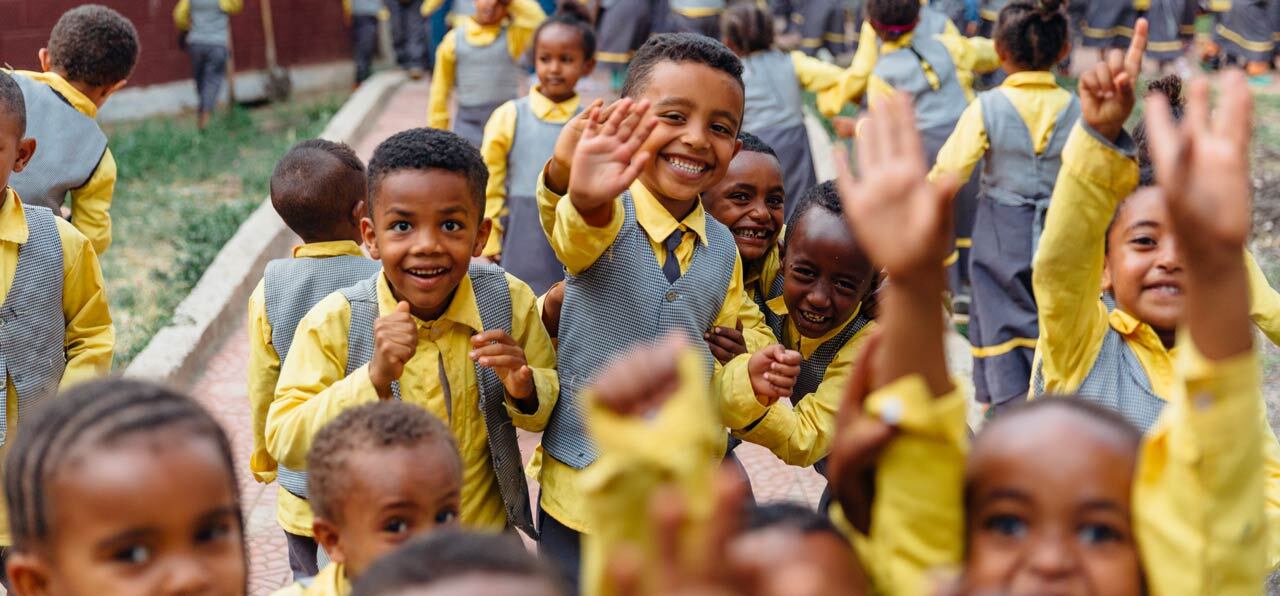Articles and information about Splash and the work we do.

March 17, 2025
Tackling the Global Water Crisis

On World Water Day, Splash and MiiR are sharing information about the water crisis and offering solutions to some of the greatest WASH challenges worldwide. For nearly a decade, MiiR has supported and championed Splash’s work bringing clean water to kids in some of the world’s largest cities.
Did you know that billions of people around the world still lack access to clean and safe water, sanitation, and hygiene (WASH) services? According to the UN, more than 2 billion people do not have access to clean water, 3.5 billion people lack safely managed sanitation, including 1.5 billion without even basic sanitation services. Two billion people lack a basic handwashing facility, and 653 million have no handwashing facility at all.
Quick– imagine a water access project in Africa. What does it look like to you? Is it in a rural area, perhaps a newly-dug well or piped water to a few households or a small community? Many people think of water scarcity as a rural issue, yet cities are exploding in population and in many places, services are unable to keep up with this growth. The most vulnerable citizens are kids, who face disease, school absences, and undignified sanitation without access to water or adequate facilities. By 2050, more than 2.5 billion people will live in cities. Climate change further worsens the crisis by increasing floods, droughts, and water pollution.
Organizations like Splash are stepping up to address this crisis, focusing on urban schools where children often lack clean water and proper sanitation. By working toward Sustainable Development Goal (SDG) 6, which aims to ensure access to water and sanitation for all by 2030, Splash is providing solutions that are scalable, sustainable, and locally managed.
Splash’s Model
Improving Access to Clean Water
In many cities, one of the most pressing challenges is ensuring children have safe water to drink. Splash is changing that by installing high-quality water purification systems, storage tanks, and kid-friendly drinking stations in schools. These systems are built using the same technology trusted by top hotels and restaurants, ensuring every sip is safe and clean for the children who need it most.
Hayat, a 10-year-old fourth grader from Addis Ababa, Ethiopia, experienced a significant transformation in her school life after Splash implemented clean water and sanitation facilities at her school. Before these improvements, Hayat and her classmates faced challenges due to inadequate access to safe drinking water and proper sanitation. With Splash's intervention, her school now has reliable access to clean water, enhancing the overall learning environment and promoting better health among students. Hayat, who lives with her mother and six-month-old baby brother, loves playing hide and seek with her friends. She loves to learn and hopes to become a pilot one day.

Hayat demonstrating how to wash her hands at her school
Promoting Sanitation and Hygiene
Clean water is only part of the story. Without proper sanitation, schools become breeding grounds for disease, keeping kids out of class and putting their health at risk. That’s why Splash's model includes child-friendly toilets, handwashing stations, and delivers engaging hygiene education programs. These simple, practical changes help prevent the spread of illness and create healthier learning environments.
We also know that infrastructure alone isn’t enough. Building lifelong healthy habits matters just as much. Through fun, interactive hygiene lessons, children learn how to protect their health — lessons they bring home to their families and communities, creating a ripple effect of better health and well-being.
Selamawit, a 14-year-old student from Addis Ababa, Ethiopia, became an active member of her school's hygiene club two years ago. After receiving training from Splash, Selam and her friends became more diligent about hygiene practices like washing their hands before eating. Her commitment extended to her home as well—she ensured that her household's toilets and showers were cleaned and even posted hygiene messages at home. Each morning, before heading to school, Selam reminded her family to wash their hands with soap. Her involvement with Splash sparked a keen interest in biology, encouraging her to apply classroom knowledge practically.
Watch a video about Selam here:
Ensuring Sustainability
The sad truth is that 30-50% of WASH projects fail within just a few years — often because maintenance plans break down. Budgets shift, parts become unavailable, and technical skills fade. Splash is determined to break that cycle.
We design for the long haul by:
- Using locally-made parts whenever possible.
- Helping governments strengthen local manufacturing.
- Training school staff to operate and maintain the systems themselves.
- Advocating for WASH funding in school budgets to ensure long-term support.
Every school gets an initial supply of spare parts and hands-on technical support for two years after installation. Plus, we regularly test water quality to make sure it stays safe. This ongoing care helps keep systems running—and kids healthy—for years to come.
Creating Lasting Change (and Getting Out of the Way)
True sustainability happens when local communities and governments fully own their WASH systems — from funding to maintenance to expansion. That’s why everything Splash does is designed to hand over the reins.
We work side-by-side with local partners to build the skills, knowledge, and systems they need to keep clean water flowing and healthy habits growing long after we’re gone.
We want to assure an affordable, imitable, and scalable solution set that can meet the needs of any city, anywhere—without Splash leading the work.
Be Part of the Solution
The global water crisis is urgent, but solutions exist. You can make a difference by supporting Splash to bring clean water and sanitation to children in urban poverty. By advocating for policy change, investing in sustainable infrastructure, and raising awareness, we can all play a role in ensuring that safe water and sanitation become a reality for everyone.
MiiR and Splash both share the belief that every child deserves clean water, clean hands, clean toilets, and access to menstrual health support. Since 2016, MiiR has donated more than $560,000 to Splash to make this vision a reality. MiiR’s support of Splash’s programs in Nepal, China, India, and Ethiopia have helped bring improved water, sanitation, hygiene, and menstrual health to tens of thousands of schoolchildren around the world.

